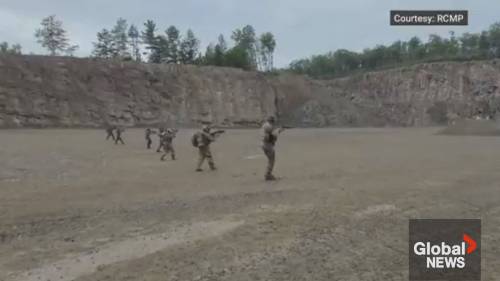In a disturbing development that has sent shockwaves through Canada’s security establishment, several Canadian Armed Forces members have been arrested in connection with an alleged anti-government militia plot in Quebec. The arrests, carried out following an extensive joint operation between military police and the RCMP, have exposed what investigators describe as a coordinated effort to undermine governmental institutions.
The investigation began after military intelligence detected suspicious communications among a group of active service members stationed primarily at Quebec bases. According to court documents unsealed yesterday, the accused allegedly formed a clandestine network that had been stockpiling weapons and conducting unauthorized training exercises in remote areas of the province.
“This case represents one of the most serious internal threats we’ve encountered in recent years,” said RCMP Commissioner Marie Leblanc at a hastily arranged press conference in Montreal. “The individuals involved had access to military training, equipment, and sensitive information that could have been exploited for dangerous purposes.”
Military officials confirmed that the suspects, whose identities remain protected under a publication ban, held various ranks within the Armed Forces and had served between three and twelve years. The Canadian Forces National Investigation Service has been cooperating fully with civilian law enforcement since the operation began several months ago.
Defence Minister Anita Anand addressed Parliament yesterday, emphasizing that the plot appears to be isolated and not representative of Canada’s military personnel. “The overwhelming majority of our service members demonstrate unwavering loyalty to Canada and our democratic values,” Anand stated. “Nevertheless, we are conducting a thorough review of recruitment and monitoring protocols to identify any potential vulnerabilities.”
Security experts note that this case highlights growing concerns about extremist ideologies infiltrating military institutions across Western democracies. Dr. Richard Tanner, director of the Centre for Security Studies at the University of Toronto, explained that military personnel are sometimes targeted for recruitment by extremist groups precisely because of their tactical training.
“What makes this case particularly concerning is that it wasn’t external recruitment—these individuals appear to have self-organized,” Tanner told CO24 in an exclusive interview. “This represents a different kind of threat vector than what security services have traditionally monitored.”
The investigation revealed that the group had allegedly developed detailed plans targeting government buildings and infrastructure in Quebec and potentially other provinces. Court documents indicate they had established communications with similar groups across the country, raising questions about the scope of anti-government militia activities nationwide.
Quebec Premier François Legault expressed his concern about the developments but urged citizens to maintain perspective. “While this situation is deeply troubling, Quebecers should know that our security forces have demonstrated their effectiveness by uncovering this plot before any harm could come to our communities.”
The accused face multiple charges, including conspiracy to commit terrorist acts, unlawful possession of restricted weapons, and breach of military code of conduct. If convicted, they could face up to 25 years in prison. The military tribunal hearing is scheduled to begin next month, with additional civilian court proceedings to follow.
This case emerges amid heightened political tensions and polarization across Canadian politics, prompting difficult questions about ideological extremism within institutions meant to protect the nation. As Canada grapples with this unsettling revelation, perhaps the most important question is: How can democratic societies effectively safeguard their security institutions against the very extremism they’re designed to defend against?










